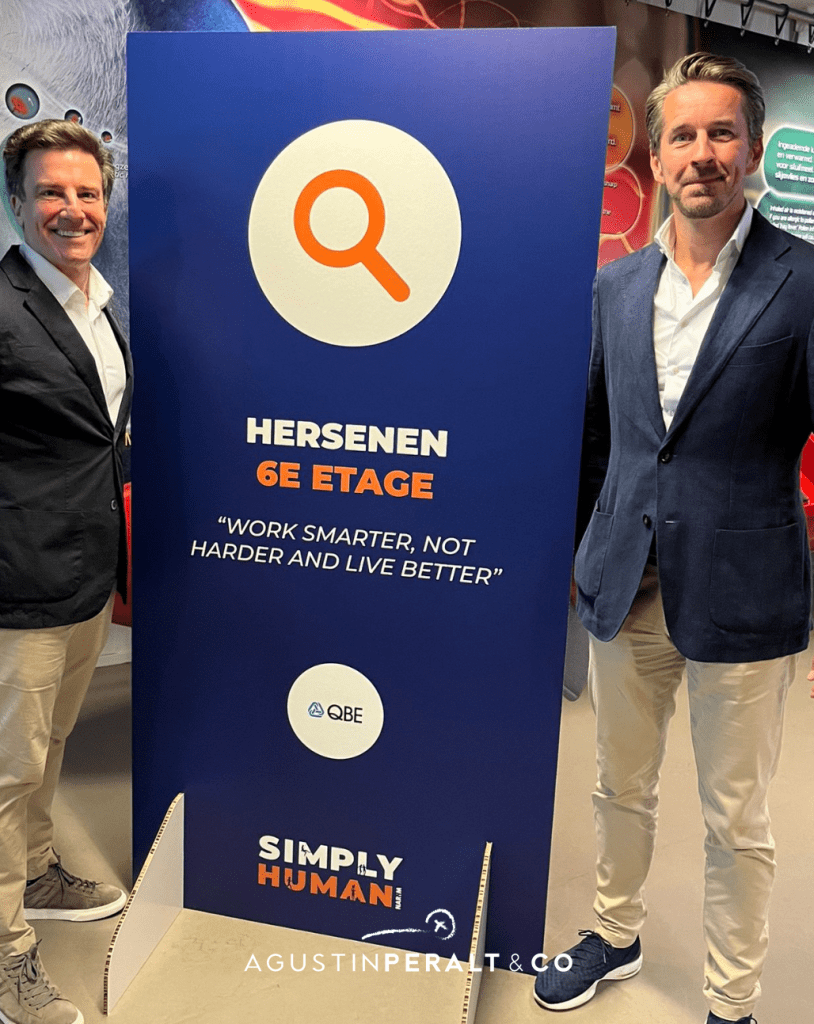Having the Dutch invite a Spaniard to give a conference in Amsterdam titled “Work Smarter, Not Harder” and to present Método FASE, a Spanish productivity and time management methodology, might seem like a joke, and above all, not very credible. That’s why we added to the title: “Work Smarter, Not Harder and LIVE BETTER.” The idea of wanting to know the secrets of Spaniards to enjoy life is much more attractive.
Jokes aside, last week we were in Amsterdam invited to this conference by QBE Amsterdam, thanks to Sebastián Ijaz and Beatriz Valenti, all of them clients of the method. First surprise: full house! And, knowing the place well, since some of us have worked in the country before, we were surprised that they valued the messages we usually convey so much.
Second surprise:
Very positive reception, much greater than expected. Full House: The Impact of the Productivity Conference in Amsterdam
This made us think about the reasons behind such a good reception. Later, when talking with Joris, our coach who leads Northern Europe, we came to the following conclusion: technology, which came to help, has progressively and silently deteriorated high-productivity cultures like the Dutch, where they are now starting to have time management problems more than in the past. The misuse of technology for communication in all its forms – email, mobile, Teams – as well as the power of the internet to distract us, among other things, has led to multitasking taking over everything, making the rest difficult. It makes us not have enough time, unable to work with full attention on certain topics, and drains our energy during the day.
And this leads us to the hamster wheel of silent and progressive deterioration, where we end up lacking time to think about our priorities or to plan well. What an irony.
Our conclusion is clear: technology, or rather, the misuse of technology (as Jon Acuff says, “there is a whole industry that does not want me to grow, that does not want me to change, that does not want me to stay connected to what really matters”), has made productive people and cultures less so, and those that were not productive are in free fall. And that’s why we see so many cases of burn-out.
It’s not the workload, nor the issues in the sectors, nor how complicated your company is, nor your boss, nor your team, nor your partner; it’s us and our inability to detect that, with this way of working, everything is much more complicated than it really is. We must change. Everyone can find balance, but effort is required to achieve it.



